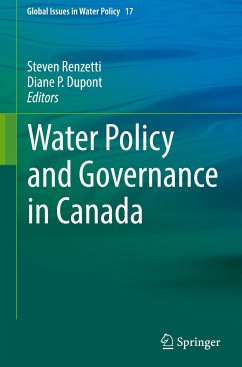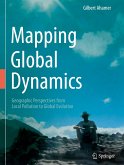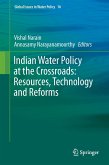This book provides an insightful and critical assessment of the state of Canadian water governance and policy. It adopts a multidisciplinary variety of perspectives and considers local, basin, provincial and national scales. Canada's leading authorities from the social sciences, life and natural sciences address pressing water issues in a non-technical language, making them accessible to a wide audience.
Even though Canada is seen as a water-rich country, with 7% of the world's reliable flow of freshwater and many of the world's largest rivers, the country nevertheless faces a number of significant water-related challenges, stemming in part from supply-demand imbalances but also a range of water quality issues. Against the backdrop of a water policy landscape that has changed significantly in recent years, this book therefore seeks to examine water-related issues that are not only important for the future of Canadian water management but also provide insights into transboundary management, non-market valuation of water, decentralized governance methods, the growing importance of the role of First Nations peoples, and other topics in water management that are vital to many jurisdictions globally. The book also presents forward-looking approaches such as resilience theory and geomatics to shed light on emerging water issues.
Researchers, students and those directly involved in the management of Canadian waters will find this book a valuable source of insight. In addition, this book will appeal to policy analysts, people concerned about Canadian water resources specifically as well as global water issues.
Even though Canada is seen as a water-rich country, with 7% of the world's reliable flow of freshwater and many of the world's largest rivers, the country nevertheless faces a number of significant water-related challenges, stemming in part from supply-demand imbalances but also a range of water quality issues. Against the backdrop of a water policy landscape that has changed significantly in recent years, this book therefore seeks to examine water-related issues that are not only important for the future of Canadian water management but also provide insights into transboundary management, non-market valuation of water, decentralized governance methods, the growing importance of the role of First Nations peoples, and other topics in water management that are vital to many jurisdictions globally. The book also presents forward-looking approaches such as resilience theory and geomatics to shed light on emerging water issues.
Researchers, students and those directly involved in the management of Canadian waters will find this book a valuable source of insight. In addition, this book will appeal to policy analysts, people concerned about Canadian water resources specifically as well as global water issues.








